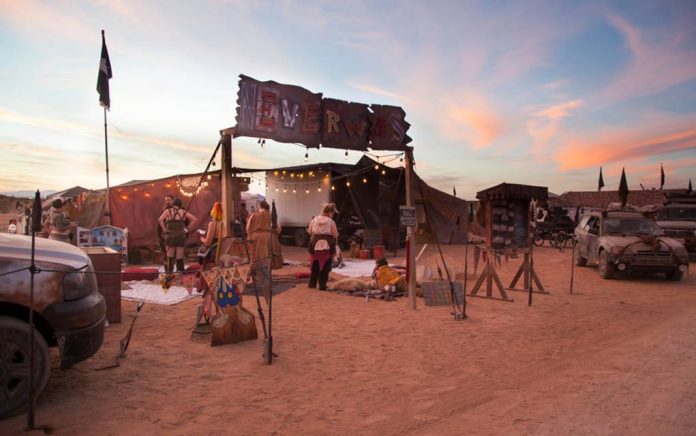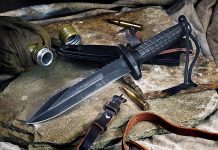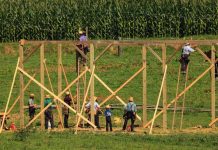
(TacticalNews.com) – When it comes to prepping, there are generally two schools of thought: the lone wolf mentality and the survival group mentality. The lone wolf believes it’s best to stand alone, or with their family, against all odds. The survival group mentality believes the odds of survival increase with more people, especially if each individual brings something special to the unit such as unique skills, gear, or even property.
Regardless of which path you find to be right for you, a small family group or a larger survival community, there need to be well-defined roles for each person.
In the following video, Survival Dispatch breaks down five often-overlooked survival roles that every team should have:
- Water Works. If your group’s source of water is outside of a “safe zone,” someone will need to collect water. The amount of water required will depend on the size of your group, but a good rule of thumb is that each person needs to consume one gallon of water a day. Since water weighs roughly 8 pounds per gallon, moving it requires a lot of work.This individual will gather and relocate water, and will likely need to purify it for drinking as well. Thankfully, not all water will require boiling. Washing clothes or watering a garden can be done with “dirty” water.
- MEDIC! The need for a medic is pretty obvious, however, the behind the scenes aspects of this role aren’t. Not only must the number of people the medic is treating be assessed, but what will happen if the medic is compromised. This person should be cross-training other members of the group to handle wounds, illnesses and other medical emergencies to establish a high level of redundancy. Anyone can carry a bucket of water, but not everyone can sew up a knife wound.
- Negotiator. Let’s face it: emergency situations are times of high stress, and bickering is almost inevitable. Infighting can destroy a survival group. Having a designated negotiator to help navigate these disputes is of great importance. A well respected, soft-spoken member of the group is ideal for this position because they will command authority. Identify who this is in your team and assign the role now to prevent issues later. Not only will the negotiator help within your group, but if communication is required with other groups, they can serve in this role then as well.
- Tinkerer. Every group needs a Jack-of-all-trades who can repair broken equipment to create new tools from scrap. A good tinkerer is vital. As with the medic, the tinkerer should cross-train other members of the group. You never want to rely on just one person for a vital position in case something happens to them.
- Strategic Planner. This role often falls on the shoulders of the group leader, but not always. A strategic planner is someone who can prioritize what each person in the group needs to do, and has a vision of the future for the team. This person can see the operation as a whole, and knows when to reassign tasks based on the needs of the village as they come up. Project management and the ability to read people and know where they will best serve the group is key to this position.
Of course, there are other tasks and jobs that will need assigned, such as security, gardening, waste disposal and the like. But these five primary roles are often overlooked when forming survival groups — though they are vital to the success of the team.
For more information on the most important skill every member of your survival group needs to have, check out our article here.
Have you ever considered who would be responsible for the tasks that will need to be done in the aftermath of a disaster? Do you think assigning specific roles would be important? Reply to your email and share your thoughts, we would love to hear from you!
Copyright 2021, TacticalNews.com



















